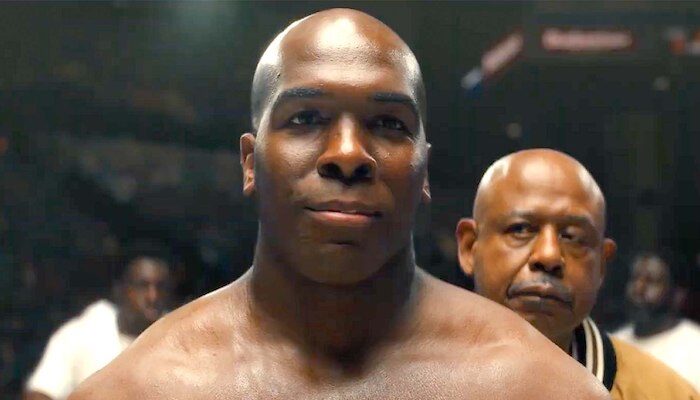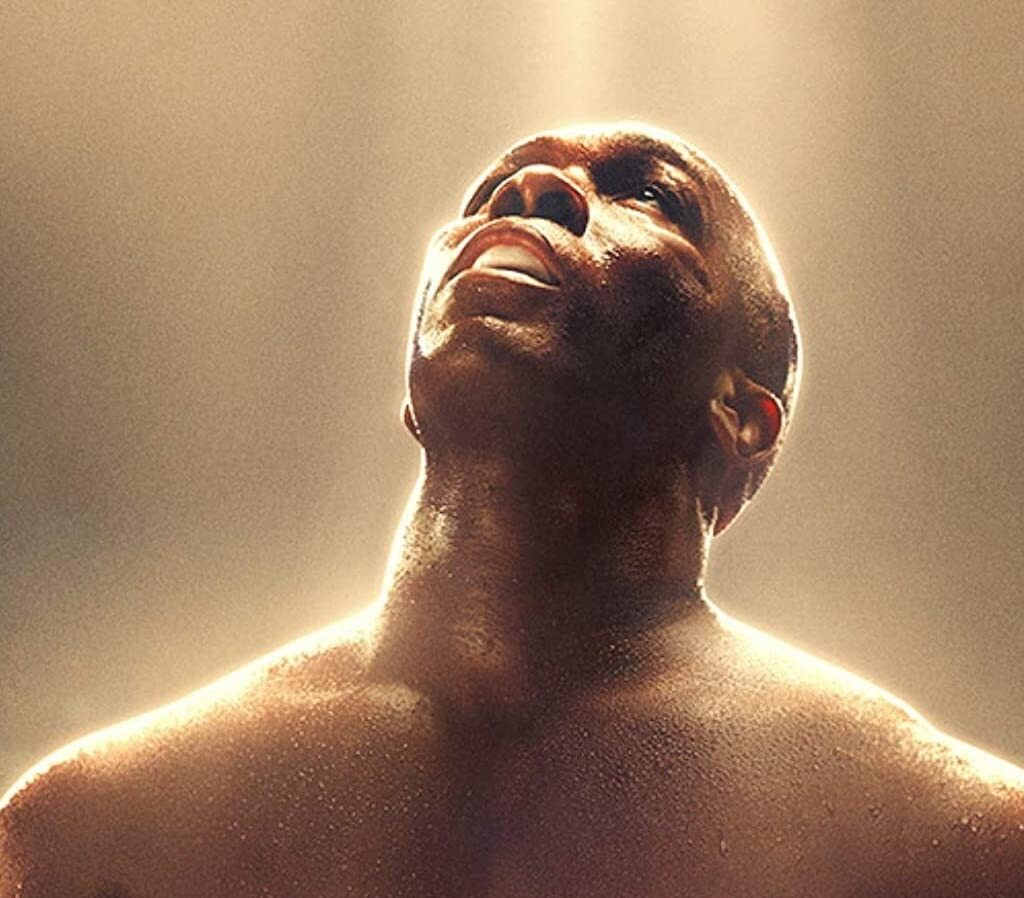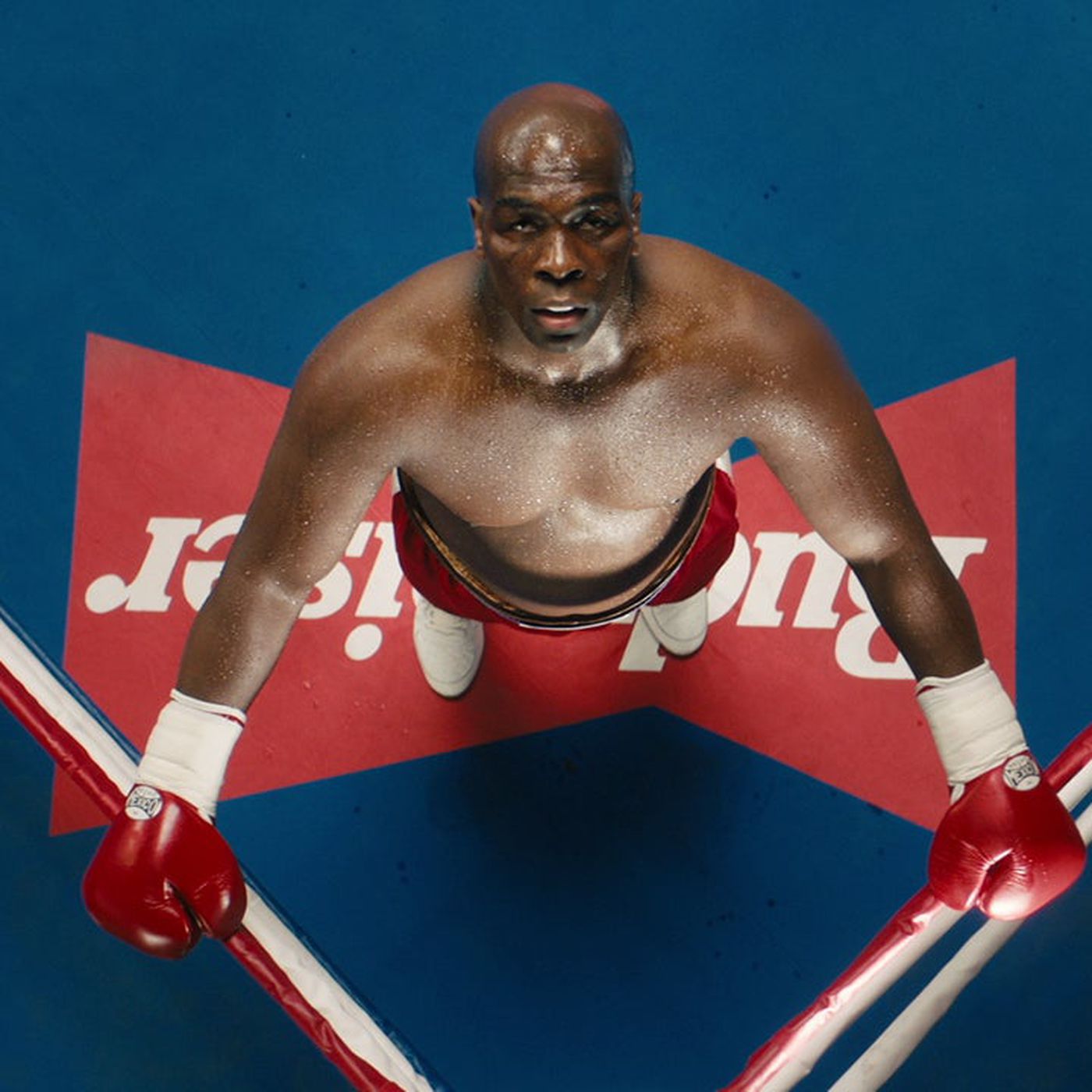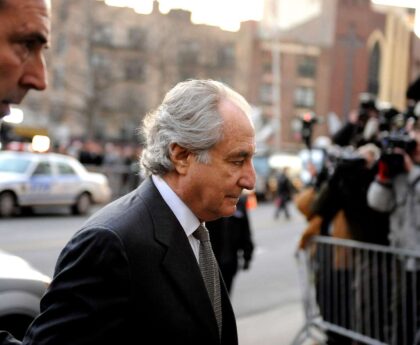The full name of the Netflix original film Big George Foreman is an amazing three words: Big George Foreman: The Unbelievable True Story of the Future World Heavyweight Champion. This rambling padooka of a subtitle almost certainly uses the word “miraculous” to appeal to an audience that may need a reminder that Foreman was a famous boxer before he was the even more famous spokesperson for a gazillion-selling kitchen gadget. The biopic directed by George Tillman Jr. and produced by Foreman himself attempts to show the many sides of the boxer-turned-preacher-turned-infomercial pitchman, tracing his journey from Muhammad Ali’s scowling antagonist to his smiling face on infomercials. However, the film’s ambitious scope only serves to illustrate why biopics shouldn’t attempt to span multiple decades in a person’s life.

BIG GEORGE FOREMAN: STREAM IT OR SKIP IT?
Overall Meaning: “I was 28 years old when I died.” Considering that George Foreman (Khris Davis) states this in the opening voiceover, it’s safe to conclude that he didn’t stay dead; the film is billed as Based On A True Story (which makes it a BOATS film), and in True Stories, people just don’t narrate from the Great Beyond. Eventually, we’ll get to the moment where he “died,” but for now, let’s go back to Houston, where George (Kei Rawlins) was born into extreme poverty. He and his siblings are eating a single hamburger amongst them after moving into a rundown house. On his first day at a new school, his mother Nancy (Sonja Sohn) begs him not to get held back or get into any more fights, and for a minute or three, he follows through on that promise. A lot of the movie consists on putting up a scenario so it can be knocked down so the movie can quickly go on to the next biographical high or low point, and not because of the blows, although the biography of a boxer necessarily must represent it.
George explains, “Anger was my answer to everything,” before skipping ahead a few years to a point where Davis seems considerably too old to be portraying a teenager. When he and his pal get into trouble for robbing drunks on the street, he takes refuge in a drain and covers himself in garbage so the K-9 unit won’t smell him. Eventually, he gets his act together and enlists in the Job Corps in California, where he meets the man who will introduce him to boxing, Doc Broadus (Forest Whitaker), and Dez (John Magaro), the boozing friend who will “take care” of George’s finances after he becomes a famous boxer (no spoilers, but you know what’s coming). As George enters the arena for the first time, Doc yells, “You stand there like a statue, then a pigeon is gonna crap on you!” This is sound advice that can be applied in many situations.
If he wants to employ his considerable combat skills, including a bomb of a hook that could make a silverback gorilla shrug, in a controlled context, the child is going to require some discipline. We cut to a montage of him working out on the jump rope, heavy bag, and speed bag before cutting to him winning gold at the 1968 Olympics, meeting his first wife Paula (Shein Mompremier), having his first professional fight, going 11-0, getting married, and going 36-0. Dramatizing his knockout of Joe Frazier to win the heavyweight title requires a pause in the action, but it proves that this is the kind of movie that would never, ever consider not casting an actor to resemble Howard Cosell so that he may deliver the classic line, “Down goes Frazier!” The end for Frazier! Frazier is out!

This just takes us up to 1973; the film still has another 45 minutes to cover the next two decades of George’s life. This story covers everything from George’s incredible Rumble in the Jungle bout against Muhammad Ali (Sullivan Jones) to his subsequent retirement from boxing to become a preacher and another marriage (this story skips a few of the real George’s marriages) to his investment in a youth center and his subsequent financial hardship and his subsequent unlikely return to boxing despite his significant paunch, etc., etc. What the heck happened when he “dies” from a boxing battle and then immediately removes his underwear? As a result, his long-lost trust in Jesus is restored. He lived quite the interesting life, huh?
What Other Films Will You Think of? : The George Foreman portrayed in this whitewashed biopic, in which Muhammad Ali plays the villain at least briefly, stands in stark contrast to the George shown in the documentary Muhammad Ali: When We Were Kings. Otherwise, it’s a typical Roberto Duran boxing biopic that pushes too hard, like the Whitney Houston vehicle I Wanna Dance With Somebody. (Whitaker portrayed a boxing trainer in the movie Southpaw, in case you forgot.)
Worth Watching Performance: Newcomer Davis, who previously had small roles in Judas and the Black Messiah and Space Jam: A New Legacy, is occasionally uncanny in his depiction (imitation?) of Foreman and shows enough talent to inspire interest in his future work, ideally in a film with less formulaic elements.
Memorable Dialogue: George laments what happened in the ring with Ali: “The rope-a-dope. And I was the dope.”
Sex and Skin: None! Even though George had 12 children!
Read more – Is the Streaming Version of ‘Gran Turismo’ Available on Netflix, Max, or Amazon Prime Video?





